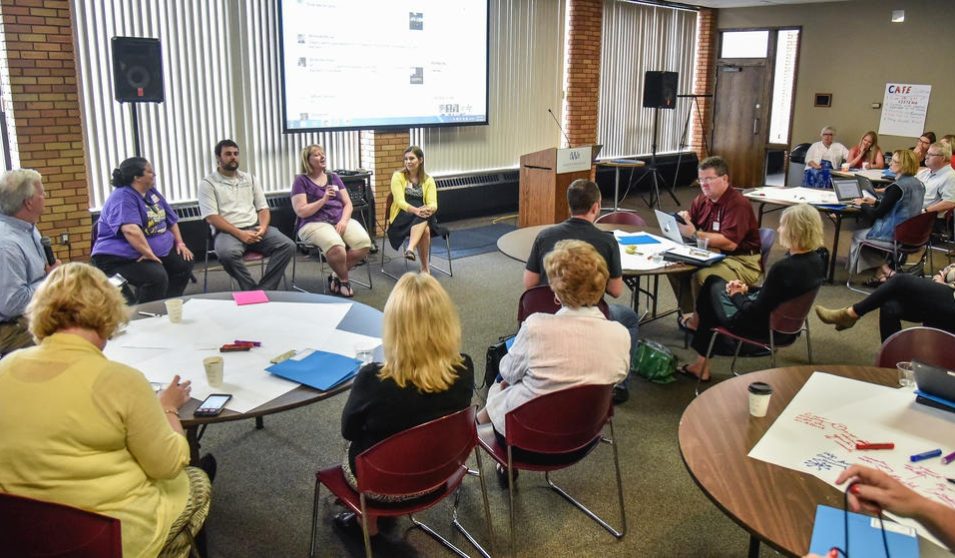The Rural Teacher Corps Project: Stakeholder Dialogue held June 13 and 14 on the campus of Dakota Wesleyan University in Mitchell, South Dakota was a resounding success. Sixty-five attendees from ten different states journeyed to the event. The group included representatives from colleges and universities, school districts, and rural advocacy organizations. In addition, there were future rural teachers, current rural teachers, and school administrators. We want to thank EVERYONE who contributed to this wonderful effort.
Participants began the Monday session with an examination of the current "rural reality," a discussion on what it meant to be a rural teacher, a review of two teacher corps programs, and then made suggestions on specific recommendations that might enhance the recruitment, preparation and retention of teacher-leaders. In addition, the concept of teacher leadership and its importance to rural areas was explored, and the group brainstormed on how people could work together to promote this concept.
Monday evening was highlighted by an informal authors' chat that occurred in conjunction with supper. Writers and scholars Paul Theobald, Anne Schulte, and Jeanne Surface took part in what was an authentic and open discussion on the hopes and challenges for rural towns and school districts.
Tuesday's work focused on how groups could move forward on these issues in their respective regions and included recommendations to the Rural Schools Collaborative board of directors on how they could continue to advance this important work.
The event also featured a TweetChat that had a wonderful and surprising response. Go to #RuralTeacherCorps to review the numerous suggestions and reflections that came in from people from across the nation. We want to thank #RuralEdChat for helping get the word out about this companion event.
Finally, South Dakota's The Daily Republic had an excellent front page article on the event, and we encourage you to check it out.
A full summary and "Dialogue" report will be distributed to participants and made available on this website. We believe in the importance of action and reflection, so as we move forward it will be important to facilitate an ongoing conversation on how rural schools and communities can get better together.




